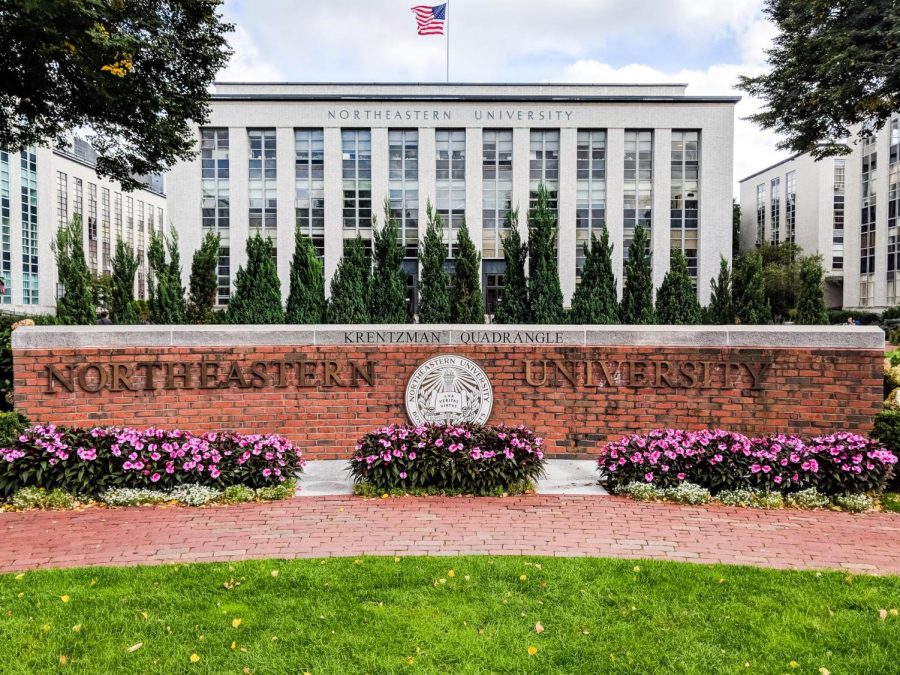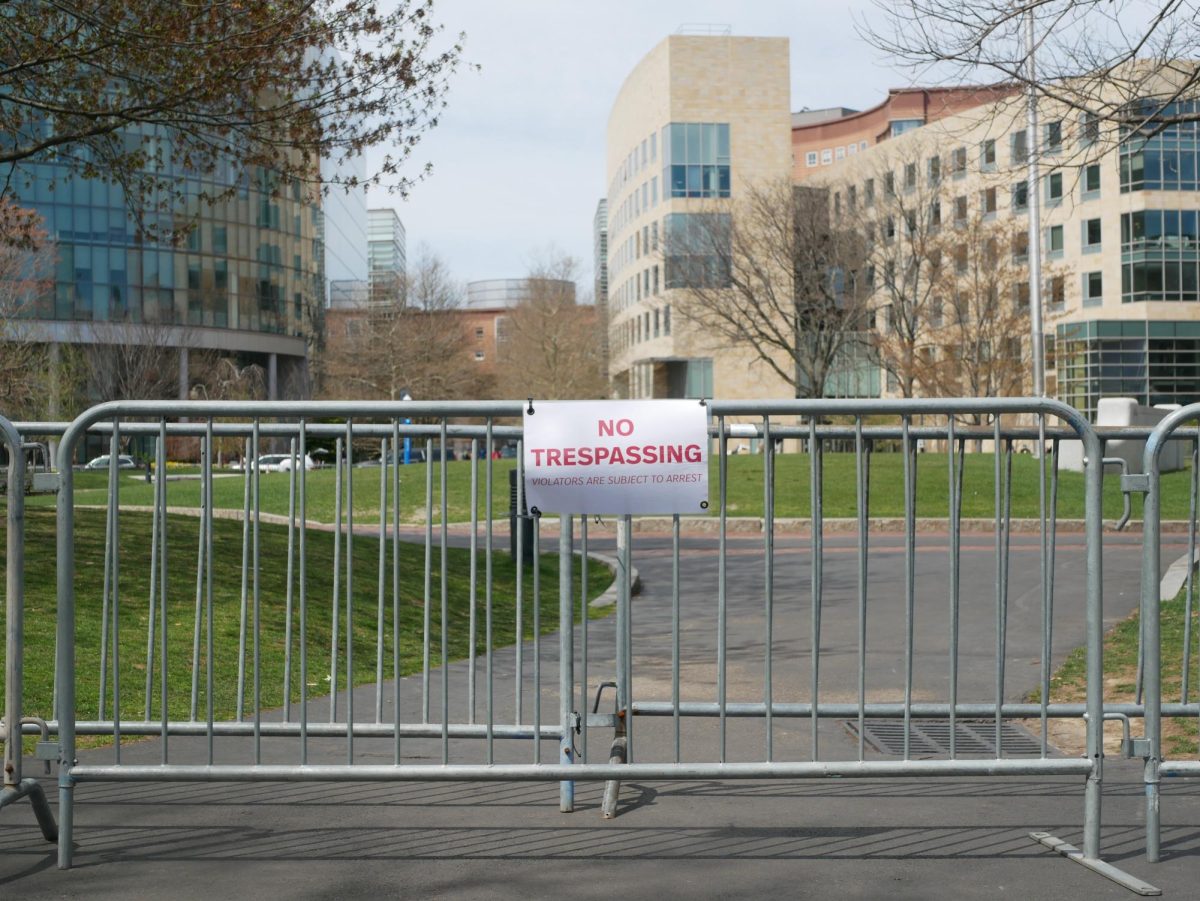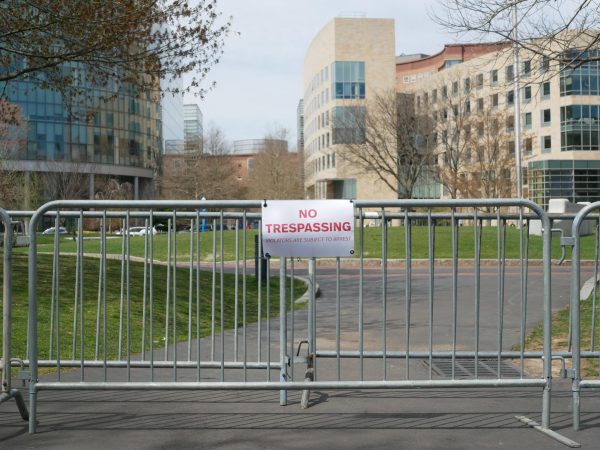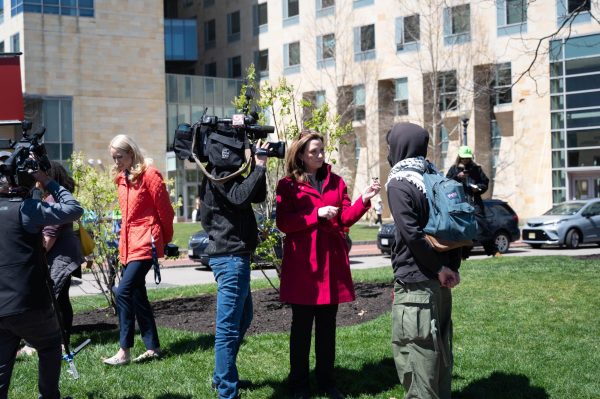Nearly 40 student groups join Coalition for Student Representation on the Board
Northeastern has postponed the start of next semester and canceled spring break.
November 13, 2019
In the most recent Student Government Association elections, a referendum question asking if Northeastern should allow undergraduate student representatives to serve on its Board of Trustees received overwhelming support, garnering approval from 91 percent of the 6,174 students who voted on the question. The Northeastern University Coalition for Student Representation on the Board, or NUCSRB, is looking to turn this desire of the student body into a reality.
As of Tuesday, nearly 40 student organizations have endorsed the Coalition. Organizations that signed on represent a broad range of student interests, from the Cheese Club to the American Society of Mechanical Engineers and the Interfraternity Council.
The aim of the group is to get the Board of Trustees to include seats for two undergraduate students. According to its website, the Board of Trustees is “Northeastern’s governing body.” The Board manages the university’s financial assets and appoints the university’s president. It also holds power of approval over the university’s mission, budget, policies and any significant changes to academic programs.
Students hoping to serve on the Board would apply through the Student Government Association, or SGA, though students would not need to be members of SGA to apply.
“A lot of times our referenda don’t always end up where we want them to be,” said Cameron Woods, a third-year economics and international affairs combined major and SGA’s executive director of communications. The Coalition’s goal is to make sure this doesn’t happen again, he said.
Student representation on the board began as an idea proposed by Northeastern’s Roosevelt Institute. Jake Margolin, who served as president of the Northeastern chapter last year, said the proposal was seen as a relatively comprehensive solution to students’ problems.
“Students in the Roosevelt Institute at Northeastern and other groups were brainstorming about big ideas that we could be pushing for that would affect multiple priorities and multiple issues at once,” said Margolin, a fourth-year politics, philosophy and economics major. Students involved with the Institute came to the conclusion that the best way to do this would be by instituting direct student representation at the highest level of university governance: the Board of Trustees.
Maxwell Huber, a third-year politics, philosophy and economics major and chapter president of the Roosevelt Institute, said that because decisions made by the Board impact almost every aspect of campus life, he believes it is vital that students have a seat at the table.
“We’re the ones most impacted by university policies. So much of our lives when we’re here will revolve around the university … and to not be directly involved with the overhead on that, it seems like there’s an incongruency there,” Huber said.
First-year sociology and communication studies combined major Cameron Jamison agreed, adding that student representatives may help change the way the Board views the university.
“Pretty much everyone on the board is looking at our university from an investor’s perspective,” Jameson said. “They’re trying to improve our ranking, but I think that what we should be doing is improving our student experiences and our student outcomes.” Having student representatives on the Board, Jameson added, would be a move in that direction.
Fontaine Gwynn, a member of the Roosevelt Institute and a third-year political science and communication studies combined major, said providing the university with unique perspectives is one way that student representatives would benefit the Board.
“I think that’s one of the biggest benefits, the student trustees offering the board new perspectives for decisions that they might not have thought of previously,” she said.
SGA President Chris Brown said he believes students are uniquely qualified to say what would be the best return on the investment on the university side.
Brown also said he feels representation on the Board would offer the student body invaluable access to the administration. “If students need to advocate for something, that direct line of communication is something that’s incredibly important,” he said.
Margolin agreed, noting that this access may increase student buy-in toward university government decisions, which he said “would be helpful for both sides.”
So far, the response from the administration and the Board has been “lukewarm,” according to Brown. “[The administration] can’t really give us a response,” he said, “but they’re not opposing us.”
Margolin added, “[The response] ranges from neutral but noncommittal to excited. We’re at a point now where we just wanted people on the Board discussing the idea.” The more the Board discusses it, Margolin believes, the more likely they are to support it. “At this point we’re really trying to work hand-in-hand with the board in partnership to get this done,” he said.
In a Nov. 13 email to The News, university spokesperson Renata Nyul wrote that “as a private university, there are no plans to add a student to the board of trustees.”
Woods said that because President Joseph E. Aoun sets the agenda for the Board, SGA officials and even most administrators don’t know when the proposal will be considered. Supporters hope the topic of student representation will be on the docket by the spring of 2020.
“As soon as we were able to get on the board docket and be formally considered, we would hope that [the creation of seats for student representatives] would be quick after that,” Margolin said.
Student response to the Coalition has been overwhelmingly positive. Out of all three referenda questions in April’s election, the question regarding including student representatives was the most popular in terms of both response and favorability. “I think the results [of the referendum] really show that undergrads are behind this en masse,” said Margolin.
The fact that 91 percent of the vote was in support of student representation meant it was “almost a mandate,” in Margolin’s view. According to SGA’s website, 5,672 out of the 7,725 undergrads who could vote on referenda at the time supported the initiative.
Gwynn said having more student organizations endorse the movement could benefit the discussion.
“It would just really drive the point home that we’re trying to make that the university and the students would really benefit from this, and I think having more support from the student perspective would really drive that home,” she said.


















